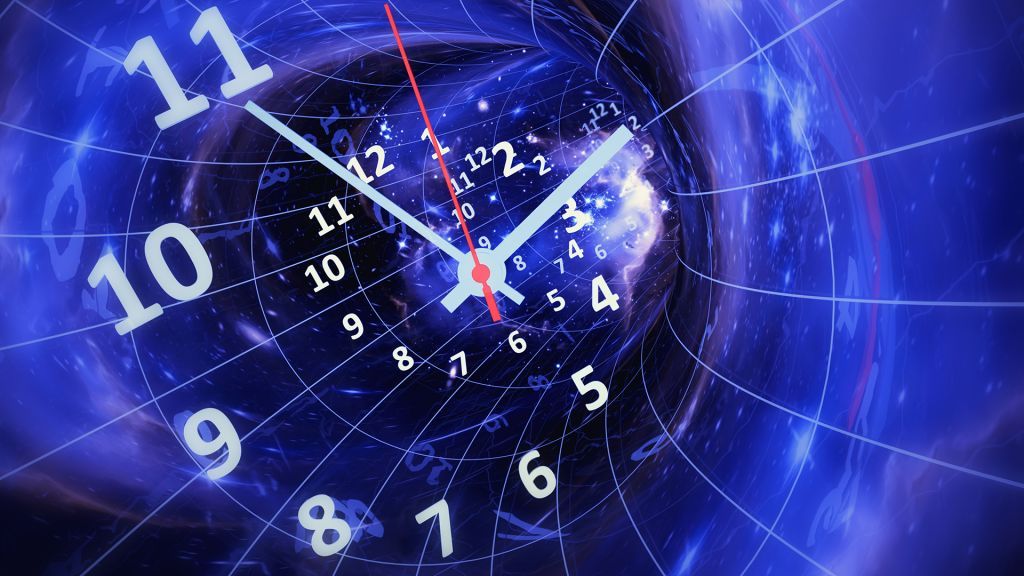29 / March / 2024 : 15-15
Climate change could affect timekeeping
 Accelerating melt from Greenland and Antarctica is adding
extra water to the world's seas, redistributing mass.
That is very slightly slowing the Earth's rotation. But the
planet is still spinning faster than it used to.
The effect is that global timekeepers may need to subtract a
second from our clocks later than would otherwise have been the case.
Coordinated Universal Time (UTC) - which is used by most of
the world to regulate clocks and time - is calculated by the Earth's rotation.
But the Earth's rotation rate is not constant and can
therefore have an effect on how long our days and nights are.
Changes to the planet's liquid core have meant the Earth has
been spinning slightly quicker.
Since the 1970s, to correct for this, about 27 leap seconds
have been added to the global clock, with timekeepers planning on subtracting a
second for the first time in 2026. This is known as a "negative leap
second."
Ice sheets are now losing mass five times faster than they were 30 years ago, meaning
that the negative leap second change will not be needed until 2029, the study
suggests.
Accelerating melt from Greenland and Antarctica is adding
extra water to the world's seas, redistributing mass.
That is very slightly slowing the Earth's rotation. But the
planet is still spinning faster than it used to.
The effect is that global timekeepers may need to subtract a
second from our clocks later than would otherwise have been the case.
Coordinated Universal Time (UTC) - which is used by most of
the world to regulate clocks and time - is calculated by the Earth's rotation.
But the Earth's rotation rate is not constant and can
therefore have an effect on how long our days and nights are.
Changes to the planet's liquid core have meant the Earth has
been spinning slightly quicker.
Since the 1970s, to correct for this, about 27 leap seconds
have been added to the global clock, with timekeepers planning on subtracting a
second for the first time in 2026. This is known as a "negative leap
second."
Ice sheets are now losing mass five times faster than they were 30 years ago, meaning
that the negative leap second change will not be needed until 2029, the study
suggests.
Viewed
1252times
Recommended
05 / June / 2020
Why Do People complain about Gov. Gavin Newsom's Adult Health Day Care and the decision to close...
Most of Adult live at home with a family member or close friend and caregiver. They arrive by family car, by bus or a Paratransit bus. They all have cognitive or physical disabilities that would...
09 / December / 2021
Aniv Ride: Flexible Micro-mobility Sharing Platform And More
Nowadays, with the whole world struggling against “gigantism” in urban transportation, shared micro-mobility is another hot point of discussion. The rapid growth of population and the existing...
08 / April / 2023
Each postage stamp has a nominal value of 400 AMD
Each postage stamp has a nominal value of 400 AMD. One of the stamps depicts the portrait of Ana Aslan, a famous Romanian doctor of Armenian origin, scientist, founder of the world's first...
11 / April / 2023
According to Samvel Shahramanyan, the head of Khnapat village, the entire area between Khnapat...
According to Samvel Shahramanyan, the head of Khnapat village, the entire area between Khnapat and Khramort villages, 142 hectares, remain completely uncultivated, because agricultural machinery...
12 / April / 2023
The Ministry reports that the two discussed a wide range of issues related to Armenian-American...
The Ministry reports that the two discussed a wide range of issues related to Armenian-American cooperation in the economic field:– expansion of economic interaction,– activation and...
13 / April / 2023
Mher Grigoryan, US Deputy Assistant Secretary of State discuss security issues in Armenia, region
Mher Grigoryan, the Deputy Prime Minister of Armenia, on Tuesday met with Erika Olson, the US Deputy Assistant Secretary of State, and Louis Bono, the OSCE Minsk Group US Co-Chair and Senior...
15 / April / 2023
US Ambassador to Armenia Kristina Kvien enjoyed tasting delicious Armenian cheeses from Syunik...
US Ambassador to Armenia Kristina Kvien enjoyed tasting delicious Armenian cheeses from Syunik region produced by local producer Borisovka. The Ambassador looks forward to exploring Armenia's...
17 / April / 2023
Armenia plans to participate in 2 other US-led military exercises in Europe
The Ministry of Defense of Armenia plans to participate in two other military exercises organized by the US Ground Forces Command in Europe this year: ‘Kosovo Forces’ and ‘Saber Junction’, said the...









